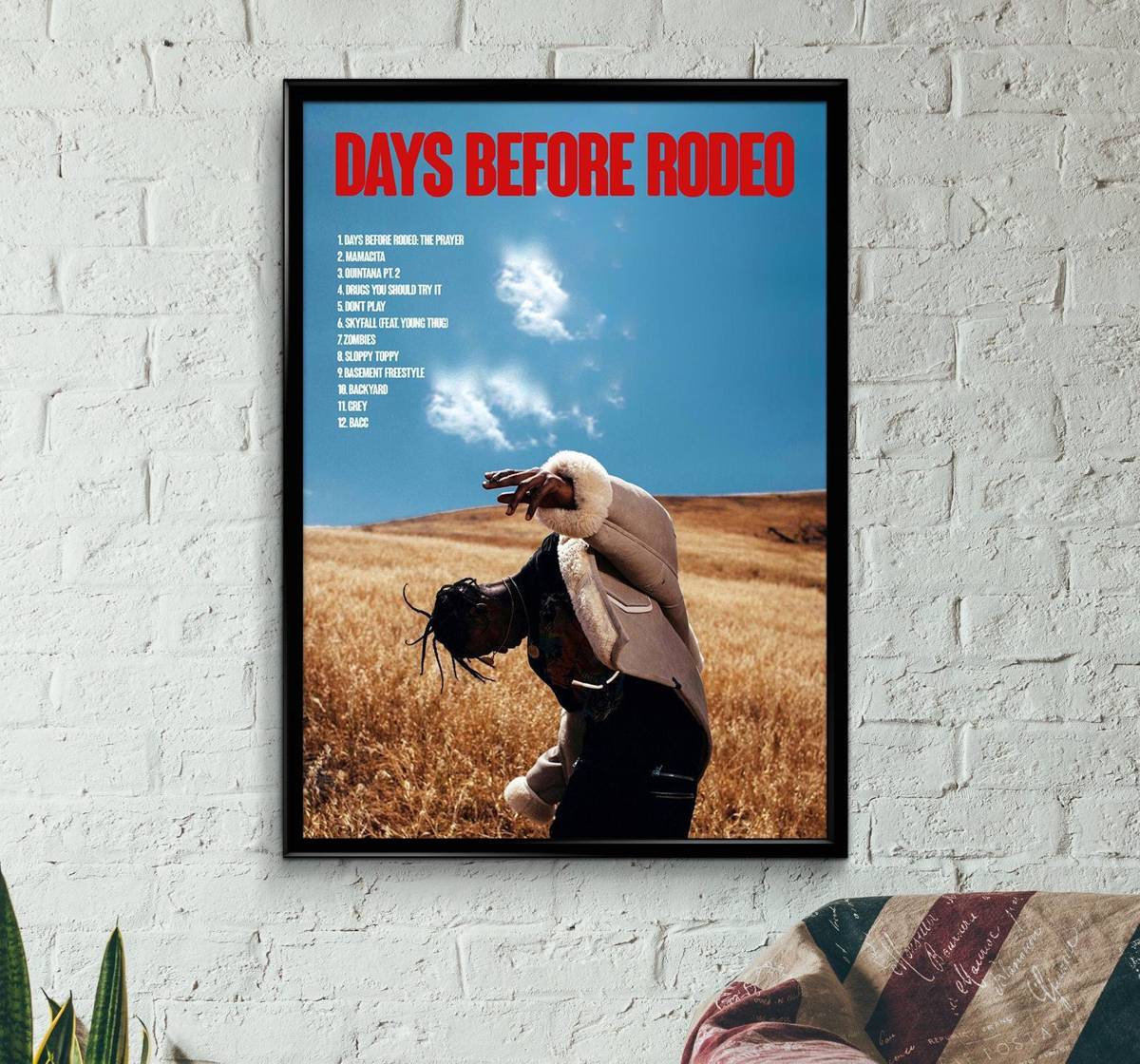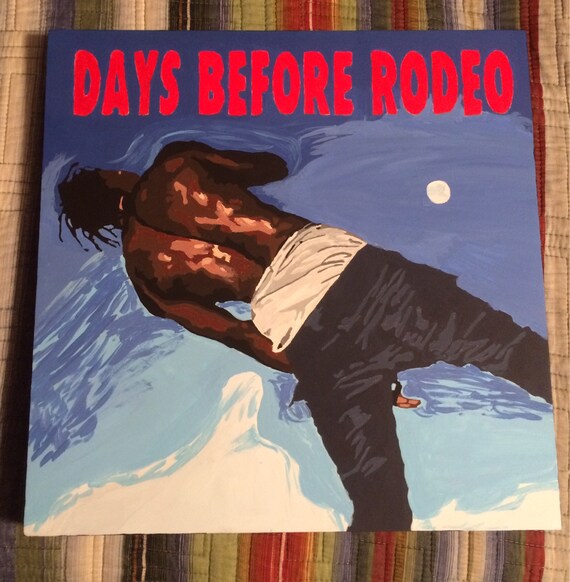

He's still a middling talent, and comes across as rebellious youngster that’s been given the keys to dad’s Porsche and simply asked not to wreck it."Days Before Rodeo: The Prayer" by Travis Scott is a reflection of the artist's chaotic and hedonistic lifestyle, as well as his inner anxieties and frustrations. But Rodeo’s best songs-"Maria I’m Drunk" and "Nightcrawler"-mostly succeed because they overcome his contributions. He is most effective when he harshly distorts his vocals to create texture, and in the company of others he can serve as a welcome change of pace. To be fair, Scott isn’t without his merits.
#DAYS BEFORE RODEO FULL#
Travis Scott’s verses are often without substance and chock full of choppy cadences, and songs without guests, especially "I Can Tell", are undone by the monotony. Even Chief Keef and Toro Y Moi make their presences heavily felt, upstaging the Houston rapper in the process. Pop singers the Weeknd and Justin Bieber both steal the show with singsong rap-like verses on their respective features. Many of those dividends, though, feel as though they arrive in spite of Scott. He’s easily outmaneuvered by charismatic rappers of note Juicy J, Quavo, and 2 Chainz ("Crib bigger than your imagination"). The sound is a kind of big-budget alt-trap with lots of accents and gloss, like if Future’s Dirty Sprite 2 was executive produced by 2010 Kanye, and it often pays big dividends. The Pharrell-produced "Flying High" fastens a surging, slow-rolling coda onto a wailing beat.

Sometimes, like on the nearly eight minute epic "3500", they have shimmering piano outros. Sometimes, like on "Oh My Dis Side" or "90210", beats jack-knife in two, revealing stunningly posh second acts. There’s standout work from Frank Dukes and Allen Ritter. The lush and often gorgeous production comes courtesy of current league leaders in rap hit-making Metro Boomin, Sonny Digital, and Zaytoven, with add-ons and attachments from a host of heavy hitters like Mike Dean, DJ Dahi, Hit-Boy, Wondagurl, Southside, FKi, and TM88. The credits are a Who’s Who of the big names in rap and its neighboring genres: Narrated by T.I., it tells a nebulous tale of Scott’s meteoric rise and the perils of fame. Rodeo is the culmination of Travis Scott’s amassed networking efforts. The strength of his catalog is almost exclusively dependent on the strength of his connections. and finagling a meeting with Kanye West out of networking with his engineer, Anthony Kilhoffer. He is one of rap’s premier young capitalists, an opportunist deft in the use of social currency, turning a friendship with Illroots creator Mike Waxx into a relationship with T.I. One thing Scott does very well is squirm through openings onto bigger platforms, which is a talent in and of itself. "Who do I owe? Nigga, no one," he boasts on opener "Pornography", when he’s actually deeply indebted to those in or adjacent to the Kanye Think Tank and the others he’s wrangled based on that affiliation. Travis Scott isn’t good at rapping-he often bawls out clunky phrases that dawdle into banality ("Always hit the gas like I broke wind")-and his self-proclaimed status as an auteur isn’t dictated by his own talent, but by the talent of those surrounding him. (There are at least three alleged reports of creative theft, which led to this takedown in Deadspin.) But this narrative overshadows the more glaring holes in his music. This has become the enduring criticism of Scott’s work so far: That he’s a skilled impersonator posing as a creative, a mime playing puppetmaster. He’s quickly earned a rep as a shameless biter, an aesthetic bender with no regard for ownership or authorship-a claim given credence by Rodeo’s second single, the Swae Lee-imitating "Antidote". But Scott has cobbled together a composite identity to compensate for lacking his own. His greatest trick is making songs feel big and important. Since releasing his debut EP, Owl Pharaoh, in 2013 (and perhaps even before) he’s been honing a sixth sense for emphasizing gravitas. Travis Scott studied carefully at the Kanye West School of Maximalism, where sounds are expensive and songs are sumptuous with rich, interlocking details and meticulously selected guests.


 0 kommentar(er)
0 kommentar(er)
